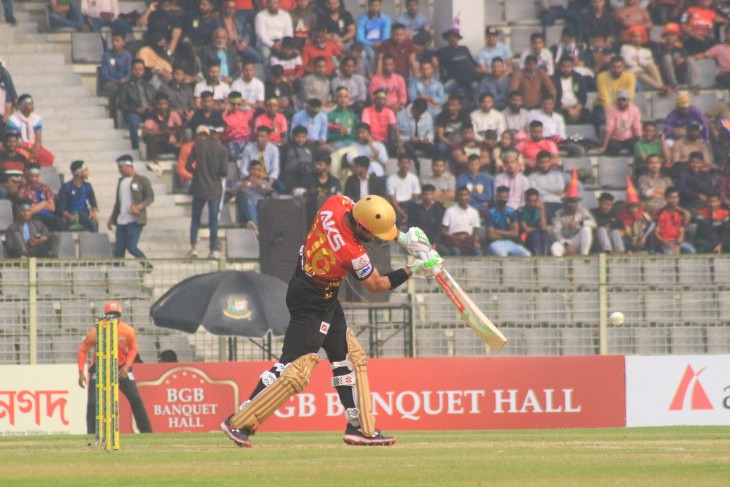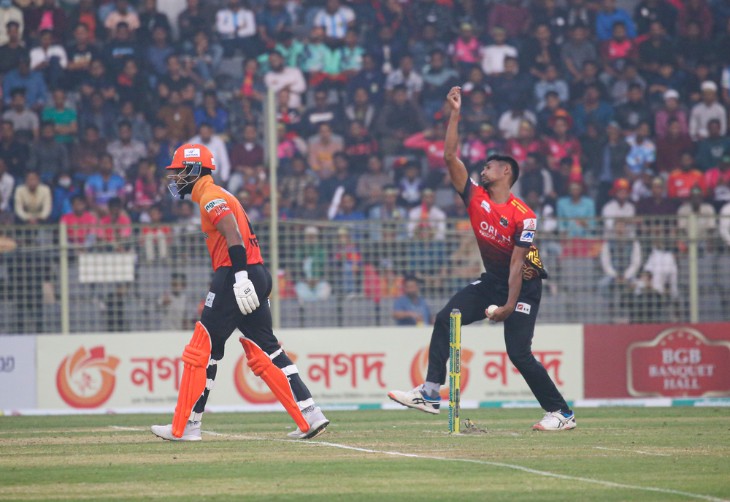The advent of T20 leagues has significantly changed the landscape of cricket, especially impacting players from the United Kingdom. These leagues, characterized by their fast-paced matches and energetic atmosphere, have offered UK cricketers new opportunities, including financial benefits and international exposure. However, they also bring intense pressure and challenging situations. This shift towards T20 cricket represents a major evolution in the sport, altering not just playing styles but also the aspirations and careers of cricketers from the UK. Let's explore how T20 leagues have influenced these players and the game of cricket itself
Global Exposure
Global exposure in the context of T20 leagues refers to the invaluable experience gained by cricketers as they compete with and against players from diverse cricketing backgrounds around the world. This exposure is particularly significant for UK players, who get a chance to test their skills in various conditions, ranging from the spin-friendly pitches of the Indian subcontinent to the pace-friendly tracks in Australia. Facing different bowling styles, adapting to various pitches, and strategizing against world-class batsmen challenge UK players to broaden their understanding of the game.
Furthermore, interacting with international players and coaches fosters a cultural exchange of cricketing knowledge. UK players get insights into the training methods, work ethics, and mental conditioning techniques employed by their counterparts from other cricketing nations. This exposure not only enhances their technical skills but also enriches their overall cricketing acumen.
In addition, playing in front of diverse and passionate crowds in different countries exposes UK players to varied fan cultures. They learn to handle immense pressure and scrutiny, which are essential skills for any international cricketer. This exposure not only aids in the development of their game but also prepares them mentally and emotionally for the high-stakes scenarios they might encounter while representing their national team. Ultimately, this global exposure nurtures well-rounded cricketers who are adaptable, confident, and capable of performing consistently at the international level.
Financial Gains
The financial gains for UK players in T20 leagues have been transformative, providing them with unprecedented earning opportunities that were previously unimaginable in domestic or even international cricket. Participating in these leagues offers substantial financial rewards through player contracts, endorsements, and performance bonuses. The financial windfall not only ensures a stable income for players but also secures their future and that of their families.
Moreover, the significant earnings from T20 leagues empower players to invest in their training, fitness, and overall skill development. They can afford top-notch coaching, access world-class training facilities, and hire personal fitness trainers, which greatly enhances their performance on the field. Financial stability also allows players to focus entirely on their game without the distractions of financial worries, enabling them to concentrate on improving their skills and contributing meaningfully to their teams.
Beyond personal gains, the financial rewards from T20 leagues have broader implications for cricket in the UK. It attracts young talents into the game, knowing that a career in cricket can be financially rewarding. This influx of talent into the sport fosters competition at the grassroots level, ultimately strengthening the quality of cricket played in the country. Additionally, the financial success of UK players in T20 leagues enhances the overall marketability and popularity of cricket in the nation, leading to increased investments in the sport's infrastructure and development programs, ensuring a sustainable future for cricket in the UK.

Skill Enhancement
Skill enhancement in the context of T20 leagues is a crucial aspect that significantly impacts UK players. These leagues provide a unique platform for players to improve and diversify their skills in various facets of the game. One of the primary skills honed in T20 leagues is adaptability. Players learn to adapt their game according to different pitches, weather conditions, and opposition strengths. Facing bowlers from different cricketing backgrounds, each with their unique styles and variations, challenges the batsmen and helps them develop techniques to counter various bowling strategies effectively.
Bowlers, on the other hand, get the opportunity to test their skills against some of the best and most aggressive batsmen in the world. They learn to bowl under pressure, develop new deliveries, and enhance their control and accuracy. Additionally, fielding standards in T20 leagues are exceptionally high, and UK players participating in these leagues often work on their agility, throwing accuracy, and catching abilities, raising their overall fielding standards.
Also, playing alongside international cricketing legends and being mentored by experienced coaches provide UK players with insights into advanced strategies and tactics. They learn about match situations, game awareness, and the art of captaincy by observing and interacting with some of the most successful players and coaches in the world. This exposure goes a long way in shaping their cricketing intelligence and decision-making skills, making them more effective and strategic players when representing both their T20 franchises and the national team. Ultimately, this skill enhancement gained through T20 leagues contributes significantly to the overall development and success of UK players in international cricket.
Pressure Situations
Participating in T20 leagues exposes UK players to high-pressure situations that closely mimic the intensity of international cricket. T20 matches are inherently fast-paced, requiring players to make quick decisions under pressure. Batting in the final overs, bowling in crunch situations, or fielding under the spotlight demands a calm and composed mindset. Learning to thrive in these pressure-cooker scenarios is invaluable, as it prepares players for similar situations in international matches, including T20 internationals and high-stakes tournaments like the ICC T20 World Cup.
In T20 leagues, players often find themselves competing in front of massive crowds and millions of television viewers. This kind of attention intensifies the pressure, testing a player's mental fortitude. The experience of handling these large audiences hones their ability to focus amidst distractions, teaching them to channel nervous energy positively. Consequently, UK players become more resilient, developing mental toughness that proves vital in critical moments for their national team.
Furthermore, T20 leagues frequently feature close matches where the outcome hangs in the balance until the final moments. Players learn how to keep their nerves and execute their skills accurately in these tight situations. This exposure to nail-biting contests teaches them the art of staying composed under pressure, a skill set that is transferable and immensely valuable when representing their country. Ultimately, navigating these high-pressure situations in T20 leagues equips UK players with the mental strength and confidence needed to excel in international cricket and contribute significantly to their team's success.
Improved Fitness and Conditioning
Participating in T20 leagues has revolutionized the approach towards fitness and conditioning for UK players. These leagues demand an extraordinary level of physical fitness due to the fast-paced nature of the format. Players engage in intense fitness routines and meticulously planned training sessions, focusing not only on strength and endurance but also on agility, flexibility, and speed. With access to world-class trainers and facilities, UK players in T20 leagues have the opportunity to elevate their fitness to international standards.
Improved fitness and conditioning are particularly essential in T20 cricket, where split-second decisions and swift movements can be the difference between a victory and a defeat. Enhanced fitness enables players to endure the gruelling schedule of back-to-back matches often seen in T20 leagues without compromising their performance. It also reduces the risk of injuries, allowing players to maintain their form throughout the tournament.
Moreover, the emphasis on fitness in T20 leagues has a profound impact on the overall approach towards training in the UK. Players bring back the knowledge and techniques they acquire from these leagues, influencing training methods at the domestic and grassroots levels. The focus on fitness trickles down to young and aspiring cricketers, promoting a culture of athleticism and health in cricket. This shift towards improved fitness not only enhances individual performances but also elevates the standard of cricket in the UK, making the national team more competitive on the international stage.
Injury Management
Injury management in T20 leagues has become highly sophisticated, providing UK players with access to cutting-edge medical facilities and expert physiotherapists. In these leagues, players are closely monitored by medical teams, which employ advanced techniques such as physiotherapy, sports massage, and recovery-focused exercises to prevent injuries and aid swift recovery. Moreover, players have access to state-of-the-art rehabilitation equipment and resources, enabling them to recover from injuries more efficiently.
One of the significant advantages of playing in T20 leagues regarding injury management is the emphasis on workload management. Players' workloads are carefully managed, ensuring they do not succumb to overuse injuries. The meticulous planning of training sessions and rest periods helps players maintain peak fitness levels while minimizing the risk of wear and tear injuries. This approach significantly contributes to the overall well-being of UK players and extends their playing careers.
Furthermore, exposure to international medical experts and diverse injury management techniques broadens the players' knowledge about their bodies and potential issues. They learn about preventive measures, recovery strategies, and long-term injury management, which they can implement not only during T20 leagues but also when representing their national team. This knowledge exchange between players, physiotherapists, and medical professionals contributes to a more comprehensive understanding of sports injuries, benefiting both individual players and the broader cricketing community in the UK.
Increased Fan Following
Participating in T20 leagues significantly amplifies the fan base of UK players. When these players perform exceptionally well in high-profile leagues such as the IPL or the BBL, they capture the attention and admiration of fans from around the world. Social media platforms further fuel this phenomenon, enabling players to directly engage with their fans, share their experiences, and showcase their personalities beyond the cricket field. As a result, UK players gain not only domestic but also international followers, creating a diverse and passionate fan base.
Increased fan following has several positive implications for UK players. Firstly, it boosts their confidence and morale, knowing that they have a dedicated fan base supporting them irrespective of where they play. This support becomes a driving force, motivating players to perform consistently at the highest level. Secondly, a larger fan following enhances the marketability of players, attracting sponsors and endorsement deals. These opportunities not only provide financial gains but also elevate the players' profiles, making them influential figures in the sports and entertainment industries.
The global fan base creates a sense of responsibility among UK players. They become ambassadors not just for their country but also for the sport, representing cricket to a broader audience. This responsibility often leads to active involvement in charitable and community initiatives, leveraging their popularity for the greater good. Ultimately, the increased fan following not only shapes the players' careers but also extends their impact beyond the boundaries of the cricket field, making them role models and inspirations for fans worldwide.
Pressure on Domestic Leagues
The rise of T20 leagues, with their glamour and financial allure, has put considerable pressure on domestic cricket leagues in the UK. Young talents are increasingly drawn towards the prospects of lucrative contracts and international exposure offered by T20 leagues, which could potentially divert their focus from domestic cricket. As a result, domestic leagues may face challenges in retaining top talents and nurturing promising players, affecting the overall quality and competitiveness of the domestic circuit.
Moreover, the pressure from the T20 leagues also impacts the scheduling and structure of domestic competitions. Players who participate in T20 leagues often have demanding schedules, leading to conflicts with domestic fixtures. This clash can result in top players being unavailable for significant parts of the domestic season, affecting the standard of play and spectator interest. Additionally, when star players are absent, it can diminish the overall appeal of domestic matches, impacting attendance and viewership.
Furthermore, the focus on T20 leagues might lead to a neglect of other formats of the game at the domestic level. Traditional longer formats like first-class and List-A cricket are essential for nurturing well-rounded cricketers who understand the nuances of the game deeply. If the emphasis shifts predominantly towards T20 cricket, it could potentially hinder the development of players' skills in these formats, impacting the quality of cricket played at the domestic level. Therefore, striking a balance between the excitement of T20 leagues and the foundational aspects of domestic cricket becomes crucial to maintaining the overall health and sustainability of cricket in the UK.

National Team Performance
The impact of T20 leagues on national team performance is profound. Players who participate in these leagues bring back a wealth of experience, confidence, and refined skills, all of which significantly enhance their performance in international cricket. Exposure to high-pressure situations in T20 leagues equips players with mental resilience, helping them handle crunch moments in international matches with composure. They also acquire innovative techniques, strategies, and game awareness by playing alongside and against some of the best cricketers globally. These skills, when transferred to the national team, elevate the team's overall performance, especially in high-stakes tournaments like the ICC T20 World Cup.
Additionally, the success and recognition earned by UK players in T20 leagues bolster their confidence and self-belief when representing the national team. The experience gained in these leagues often translates into leadership qualities, with players stepping up as captains or key decision-makers in crucial situations. Moreover, the competitive environment of T20 leagues hones players' skills, making them more adaptable to diverse conditions and oppositions in international cricket. Consequently, the national team benefits from a pool of players who are not only technically proficient but also mentally tough, contributing significantly to the team's consistent and competitive performance on the global stage.
Increased Competition
The proliferation of T20 leagues has led to a surge in the level of competition in cricket, and UK players are no exception to this trend. With numerous leagues taking place around the world, players from the UK face stiff competition from both their compatriots and international players vying for spots in these leagues. This heightened competition pushes players to continuously improve their skills, maintain peak fitness levels, and perform consistently in domestic and international matches to secure coveted slots in T20 leagues. The knowledge that there are talented players constantly striving to break into these leagues serves as a powerful motivator, encouraging UK players to stay at the top of their game.
Furthermore, the increased competition also positively impacts domestic cricket in the UK. The desire to nurture world-class players who can compete on the global stage becomes a driving force for domestic teams and cricket boards. This competition trickles down to the grassroots level, leading to a more comprehensive and competitive cricketing ecosystem. Young talents are motivated to excel, knowing that exceptional performances in domestic cricket could open doors to international T20 leagues. As a result, the overall quality of cricket in the UK is elevated, making the national team more formidable and ensuring a constant influx of skilled players into the international arena.
Summary
In conclusion, the rise of T20 leagues has brought about a transformative change in the landscape of cricket, particularly for UK players. These leagues have not only provided financial stability but have also offered invaluable global exposure, enhancing their skills and mental resilience. The pressure situations and increased competition have pushed players to new heights, making them more adaptable and competitive. Moreover, the knowledge and experience gained in T20 leagues have significantly bolstered the performance of UK players in international cricket, elevating the standard of the national team. However, there are challenges, including the pressure on domestic leagues and striking a balance between different formats. Yet, the overall impact underscores the positive influence of T20 leagues, shaping UK players into well-rounded cricketers ready to face the challenges of the global stage.
For more information:


